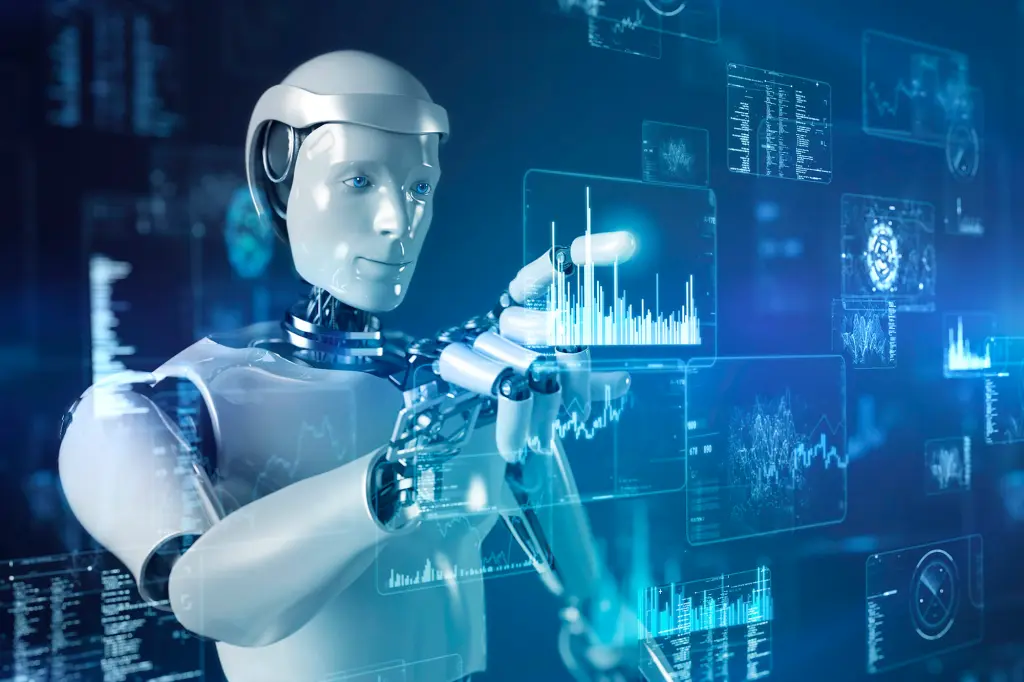How AI and ML are Revolutionizing Mechanical Engineering
In the rapidly evolving field of mechanical engineering, advancements in technology are reshaping traditional practices and opening up new opportunities for innovation. One such breakthrough is the integration of Artificial Intelligence (AI) and Machine Learning (ML) techniques, which have the potential to revolutionize how mechanical engineers design, analyze, and optimize complex systems. In this blog post, we will explore the diverse applications of AI and ML in mechanical engineering, highlighting their transformative impact on productivity, efficiency, and problem-solving capabilities.
Design Optimization and Simulation
AI and ML algorithms enable mechanical engineers to optimize design processes by analyzing large datasets, identifying patterns, and generating innovative design solutions. These techniques can automate the design optimization process, allowing engineers to explore a broader range of design possibilities and identify the most efficient and reliable solutions. Additionally, ML algorithms can simulate and predict the performance of complex systems, leading to improved designs and reduced development time.
Predictive Maintenance and Fault Detection
AI and ML techniques are increasingly employed in predictive maintenance strategies for mechanical systems. By analyzing sensor data and historical performance data, engineers can detect patterns that indicate potential failures or performance degradation. This allows for proactive maintenance interventions, reducing downtime, and optimizing equipment lifespan. ML algorithms can continuously learn from real-time data, refining their predictions and providing accurate insights for preventive maintenance scheduling.
Energy Efficiency and Sustainability
AI and ML models play a crucial role in optimizing energy consumption and promoting sustainable practices in mechanical engineering. Through data analysis and pattern recognition, engineers can identify energy-saving opportunities, optimize HVAC systems, and enhance overall energy efficiency in buildings and industrial processes. Additionally, ML algorithms can optimize resource allocation, such as scheduling tasks to minimize energy consumption or reducing material waste in manufacturing processes.
Intelligent Control Systems
AI and ML techniques enable the development of intelligent control systems that can adapt and optimize mechanical processes in real-time. By integrating AI algorithms into control systems, mechanical engineers can enhance precision, responsiveness, and automation in various applications, including robotics, automation, and industrial processes. ML algorithms can learn from sensor data and optimize control parameters, leading to more efficient and adaptive control systems.
Data-Driven Decision Making
AI and ML empower mechanical engineers to make data-driven decisions by extracting valuable insights from vast amounts of data. Engineers can leverage AI models to analyze and interpret complex datasets, improving their understanding of system behavior, material properties, and performance characteristics. This data-driven approach enables more informed decision-making, leading to enhanced design choices, optimized processes, and improved product performance.
Collaborative Design and Knowledge Sharing
AI and ML facilitate collaborative design processes by enabling knowledge sharing and intelligent automation. Engineers can leverage AI-powered tools to share design knowledge, collaborate remotely, and incorporate design feedback from multidisciplinary teams. This promotes faster iterations, enhances creativity, and accelerates the design-to-market cycle.
Materials Discovery and Development
AI and ML algorithms can accelerate the process of materials discovery and development. By analyzing databases of materials properties and conducting simulations, engineers can identify novel materials with desired characteristics. ML models can also predict material behavior under different conditions, enabling engineers to optimize material selection for specific applications.
Supply Chain Optimization
AI and ML techniques can optimize supply chain operations in mechanical engineering. By analyzing historical data, demand patterns, and market trends, engineers can improve inventory management, streamline logistics, and optimize procurement processes. This helps reduce costs, minimize delays, and enhance overall supply chain efficiency.
The Essential Role of Mechanical Engineers in Biomedical Engineering and Healthcare
Virtual Prototyping and Testing
AI and ML technologies enable virtual prototyping and testing of mechanical systems. Through simulations and digital twins, engineers can assess the performance of systems, evaluate different design iterations, and identify potential issues or bottlenecks before physical prototyping. This saves time, reduces costs, and improves the overall design process.
Robust Design and Tolerance Optimization
AI and ML algorithms can optimize the robustness of mechanical designs by considering variations and uncertainties. Engineers can use these techniques to optimize design parameters and tolerances, ensuring that products and systems perform reliably even under varying conditions or manufacturing variations.
Autonomous Systems and Robotics
AI and ML play a crucial role in the development of autonomous systems and robotics in mechanical engineering. Engineers can utilize these technologies to enhance perception, decision-making, and control capabilities of robots and autonomous vehicles. This enables the automation of complex tasks, improves safety, and expands the capabilities of mechanical systems.
Quality Control and Defect Detection
AI and ML techniques are employed for quality control and defect detection in mechanical engineering. Engineers can use computer vision and image processing algorithms to inspect and identify defects in manufacturing processes. ML models can learn from data to classify and predict potential defects, enabling proactive measures to ensure product quality.
Data Analytics for Performance Monitoring
AI and ML algorithms can analyze sensor data and performance metrics to monitor the performance of mechanical systems in real-time. Engineers can detect anomalies, identify performance trends, and optimize system parameters for improved efficiency and reliability. This data-driven approach enables proactive maintenance and continuous performance improvement.
Conclusion
The integration of Artificial Intelligence and Machine Learning techniques in mechanical engineering opens up a world of possibilities for innovation and advancement. From design optimization and predictive maintenance to energy efficiency and intelligent control systems, AI and ML have become invaluable tools for mechanical engineers. Embracing these technologies empowers engineers to tackle complex challenges, optimize processes, and drive progress in the field of mechanical engineering. By harnessing the power of AI and ML, mechanical engineers can unlock new levels of productivity, efficiency, and sustainability, shaping the future of mechanical engineering.

